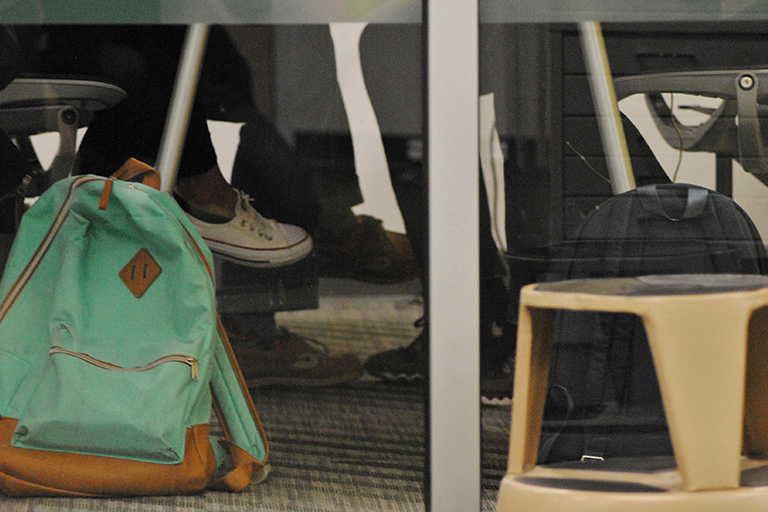You were supposed to be prepping for that "Math 113" final at 2 o'clock. It is now 3:20, and Bill is playing billiards on his phone. Richie and Ben are discussing the latest episode of "Brooklyn 99,", Stanley is being tormented by Eddie, Beverly is complaining about her roommate again and Mike left for food thirty minutes ago and still hasn't returned. What do you do?
Study groups are a good idea in theory, but can often be difficult to execute. Many people have a hard time doing any actual studying.
As such, there are bad habits associated with study groups:
CONS
- According to the New York University School of Law, there is the "danger of unpunctuality." What this means is that others in your study group may not arrive on time, or even at all. There isn't much of a way to control this either, except to show up to the agreed upon time yourself. Accidents happen, and sometimes it can be hard for some people to make it.
- You also run the risk of getting distracted. When you study with your friends, the benefit exists of people who understand you and how you learn and think. However, it can be easy to get off topic. This is understandable—there is always something to talk about with your pals, but it can lead to you not getting any work done.
- Poor attitudes can also play into the success rate of study groups. While it's okay and perfectly within reason to have the occasional "bad day," it can also poorly affect the work rate of the group as a whole. Poor attitudes can also be due to the enjoyment of the class itself. While it's okay to dislike a class every now and then, your personal bias needs to stay out of the way of your work ethic or else nothing will ever get done.
- Also recommended against is abnormal growth of a study group. An ideal study group size is 3-5 members according to Cornell University. Too many people will water down the effectiveness of any given study group.
While it's true that there is any given number of cons for a study group, the same can be said for the pros of one.
PROS
- Collective supervision by your peers is a plus. Your friends and peers in your study group can help keep you on track and free of distractions, as should you also monitor the members in your group. This includes preventing excessive technology use (i.e., cell phones, computers, gaming consoles) as well as calling for short breaks. When used effectively, supervision can greatly increase your productivity.
- Group study can greatly increase your learning capability. Concepts can be explained by those who understand the work, and can then be easily understood by those who do not understand. Having multiple people who can help you with your learning is a powerful tool that should be used to its max effectiveness.
- A study group is also useful because that means less work for you to get through yourself. If you spread your work out between you and your study group members evenly, it will be easier to complete as a whole.
- Although group study is used mainly to work, it can also bring you and your members closer together as friends—who wouldn't want to have more friends? Not to mention that as you grow together, the more you understand of each other and the easier it will be to learn together.
This information is all well and good, but what makes a study group successful? Really, it could mean anything, but the general goal of group study is to complete your work as well as understand it. So how do you maximize your effectiveness as one collective whole?
Generally, that maximum effort can be reached through the drive to do so. Choose members who are willing and wanting to work as hard as you, and don't be afraid to politely confront those members who are not meeting expectations. Also recommended is to make a list of rules or guidelines that members should all abide by with consequences to enforce them.
Simply put, a study group is made to study. If you're not getting the most out of a study group, don't be afraid to admit it and do something about it. After all, that "Math 113" final won't pass itself!



